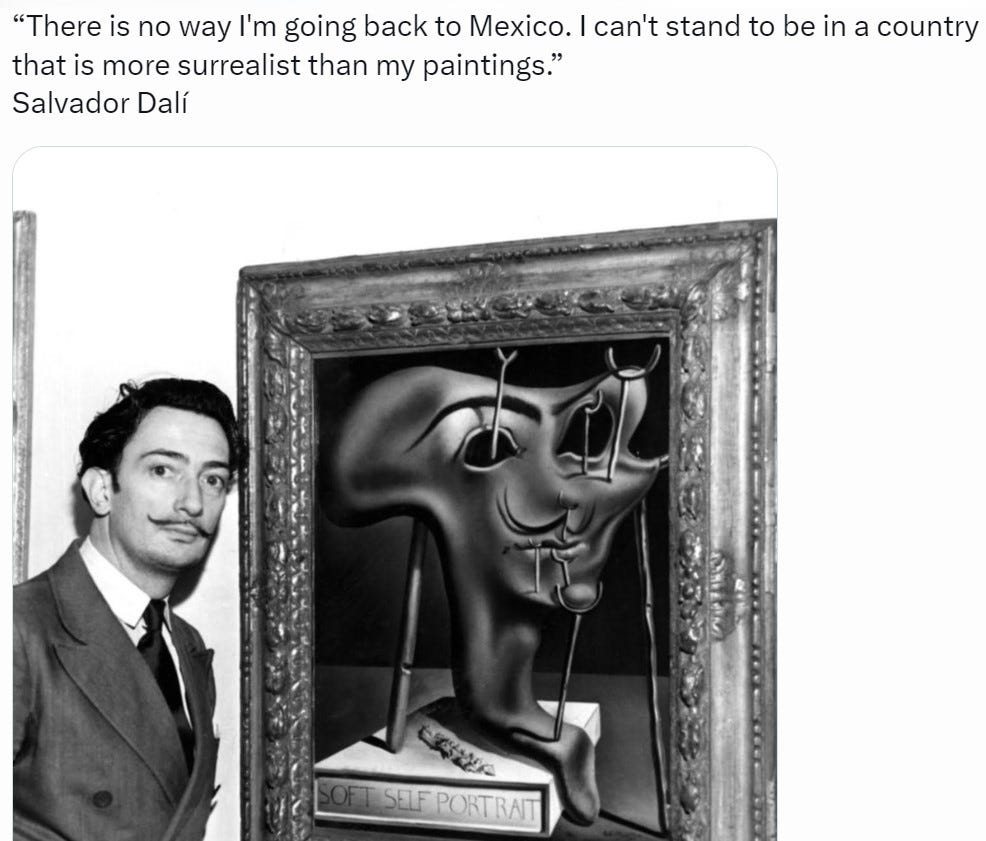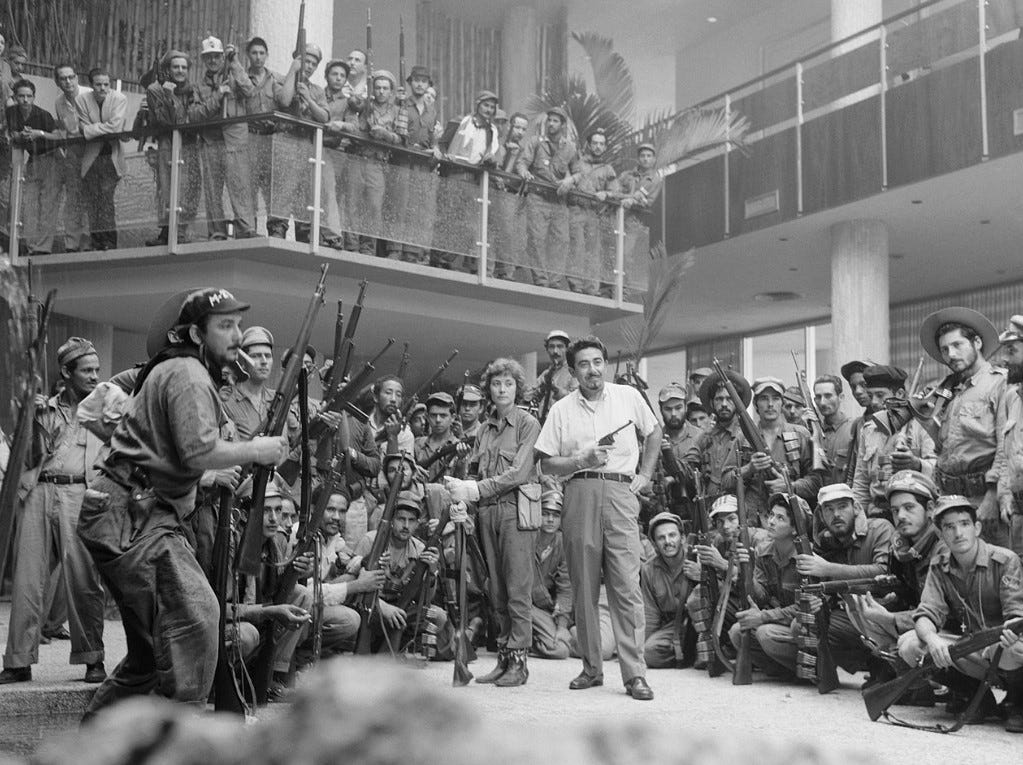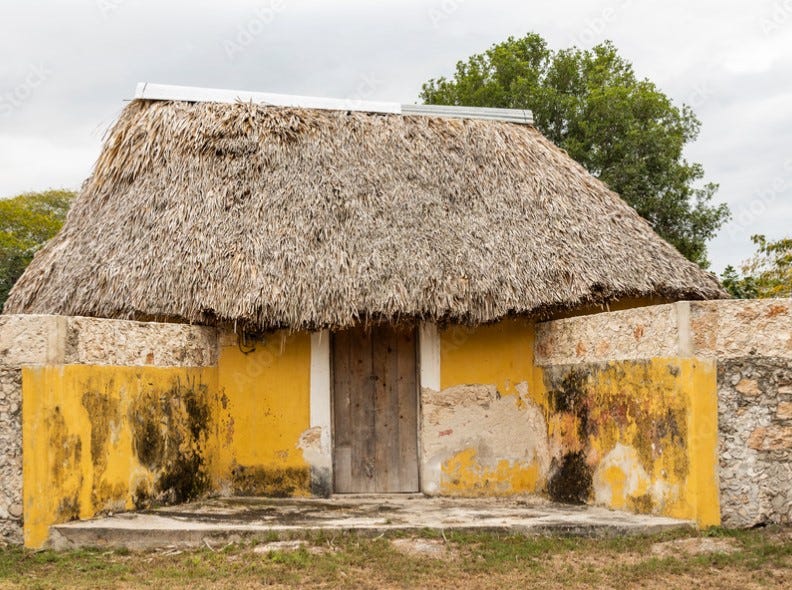Como México, no hay dos
Translation: There is no other country like Mexico
Yucatán Election: An Unlikely Story of a Poem by Rabindranath Tagore
Some years ago, I had an interesting trip to one of the far flung states in Mexico: Yucatán.
It is far flung from Mexico City, but it is closer to Havana. It was from Tuxpan, Mexico, Fidel and 81 comrades took off to an improbable plan to invade Cuba in December 1958 and overthrow the Bautista government in a boat called Granma. Of the 82, eventually 21 survived. On January 1, 1959, the rebels entered Havana in an unlikely improbable revolution.
[Rebels in Havana Hilton, January 2, 1959]
The name Mexico can be confusing. Mexico City is referred to as Mexico. In local lingo, Mexico City used to be called DF (distrito federal). But now it is CDMX (Ciudad de Mexico - which has become almost a state). There is a state called Mexico - and Mexico City is not part of that state. And of course, the entire country is called Mexico.
The capital of Yucatán is Mérida. Yucatán is a sparsely populated state. The state is full of pockets of indigenous people, mostly Mayans.
Yucatán was holding a state election on a Sunday like the rest of Mexico. They were looking for people to be "international observers." A guy named Jorge suggested my name - probably because an ethnic Indian with an Australian passport was as international as they got. The only trouble was that I did not look "foreign enough" - I looked like somebody from Mexico City.
We arrived in Mérida. There are five of us. We are supposed to go to this remote area as observers by bus near Maxcanú inhabited by all ethnic Mayan people. It would take us two hours through muddy roads. What surprised me was that instead of a simple minibus, it was a big military truck! With half a dozen men in combat gear with FX-05 Xiuhcoatl (Fire serpents) accompanying us.
¡Dios mío!
At first I thought the military convoy was for the protection of the team leader Jorge. Talking to the truck driver, I realized that there was some trouble at the area where we were heading. Hence the military protection. It was for *all of us* - especially the foreigners.
It seems that the brother of the then governor of Yucatán was in the area with a suitcase full of money trying to buy votes - literally!
When the opposition came to know about it, they came out in force and the brother drove away in his 4x4. There was one small problem.
His pickup truck was surrounded by poor peasants from the area. While fleeing, he mowed down a dozen people including a pregnant woman.
Our night stay was going to be a house that looked like this. We were driven to the municipal building where voting was to take place the following day (we were there on Saturday). That municipal building was the only one of the two brick constructions in the area. [The other is the church].
We had dinner. It was Poc Chuc downed with a few shots of mezcal. I do not know what the Norwegian, the Estonian and the Italian observers thought about them, I enjoyed it. We ate silently. The atmosphere was palpable.
We had to go to bed early. Our alarm clock was set for 4:30am. In the middle of the night, we woke up after hearing a series of gunshots. It was loud - and it was close. It woke us up. The clock was flashing 12:42am. We did not know what to do. Should we stay put inside or should we venture out?
After debating over the course of action, we went outside. The sky was clear. There was no moon. Fear hung around the balmy night.
There were a group of people surrounding the building shouting something. We had no idea who they were. Jorge had no idea what they were saying. It was in Mayan - of course. Some of them were armed.
Finally, we located a man who could speak Spanish and Mayan. He explained that all these people suspected that the vote would be fixed. And that we were not observers at all - we were hired by the government to stuff ballot boxes!
Jorge and I stood out - we did not look foreign enough. Other three looked very European. Then again, some Mexicans look like that too. Watch the soap operas in Mexico, you will see them.
Jorge gave a long speech in Spanish about the importance of democracy. [And the man translated]. Jorge argued how all the people there (other than him) came from other countries to save democracy in Mexico. To make it authentic, he then turned to me and said, "Say something in Bengali!"
¡Qué carajo!
I did not know what to say. I ended up reciting a fragment of Tagore's "Banshi".
Think of the absurdity of the situation. Here in the middle of nowhere in Yucatán, I was reciting Tagore's poem in Bengali. Nobody understood a word.
Tagore was the first person from Asia to win a Nobel Prize in *anything*. He is definitely not famous among Mayan speaking Yucatecos. My recitation must have been a world first: A Bengali poem being read out to a group of Mayans specifically because they would not understand what was being said.
At the end of my “performance”, they had some intense discussions. I am sure it was not about the merits of Tagore or my recitation. From their body language it seemed that they were (mas o menos) satisfied with the explanation. They all went away - peacefully - after shouting “¡Que viva México!”
The next day, the Yucatecos turned out in huge numbers and elected the opposition candidate by a thin margin of two percent.




Have I heard this story before? I might have. But superbly narrated; superb enough for me to be grateful that I was nowhere there.
What might I have chanted? Probably some shloka in Sanskrit.
Wished you had a mobile phone and taken some pics